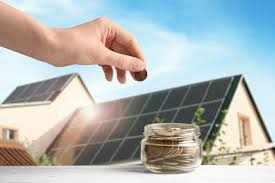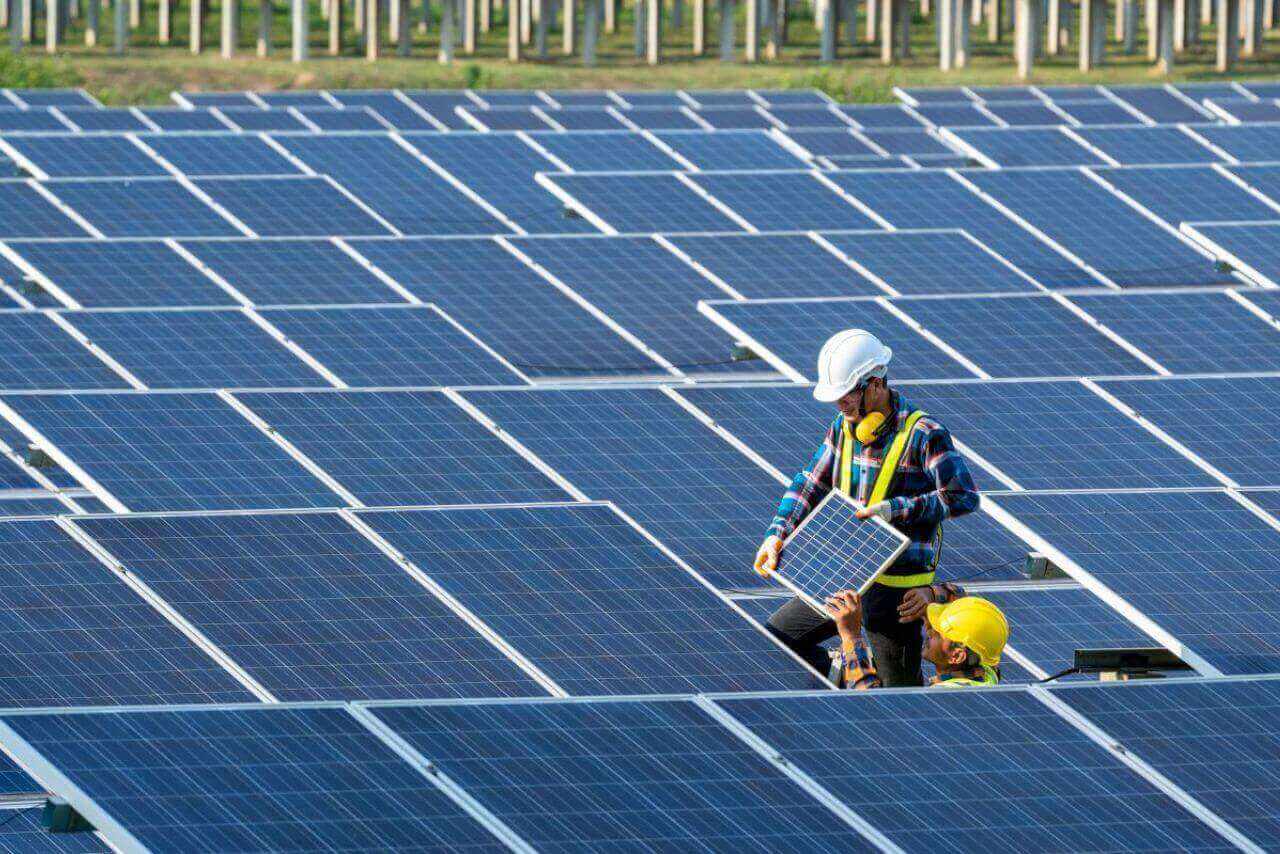
As the world grapples with climate change, resource depletion, and increasing pollution levels, the push for clean and sustainable energy solutions has never been more urgent. Among these solutions, solar energy stands out as one of the most promising. By harnessing the sun's power, solar energy offers a clean, renewable alternative to fossil fuels, and switching to solar has numerous environmental benefits that can significantly impact the planet's future.
1. Reduction in Greenhouse Gas Emissions
One of the most significant Installing an Electric Vehicle Charging Point in london environmental advantages of solar energy is its ability to reduce greenhouse gas emissions. Traditional electricity production relies heavily on burning fossil fuels like coal, oil, and natural gas. This process releases large amounts of carbon dioxide (CO₂) and other greenhouse gases into the atmosphere, contributing to global warming and climate change.
Solar power, in contrast, generates electricity without combustion. Once a solar panel system is installed, it produces zero emissions during operation. This reduction in Home Insulation in London emissions helps slow the progress of climate change and improves overall air quality. For context, an average home solar system can offset roughly 3 to 4 tons of CO₂ per year — the equivalent of planting over 100 trees annually.
2. Reduction in Air Pollution
Burning fossil fuels doesn't just contribute to global warming — it also releases harmful pollutants such as sulfur dioxide, nitrogen oxides, and particulate matter. These pollutants can lead to respiratory diseases, heart problems, and other serious Solar Panel Installation london health issues, especially in urban areas.
By transitioning to solar energy, we can significantly cut down on these pollutants. Cleaner air not only benefits human health but also improves the health of ecosystems. Solar power allows us to reduce our reliance on power plants that emit toxic chemicals into the air, helping to create healthier communities and warm home grant protect vulnerable populations, such as children and the elderly.
3. Conservation of Water Resources
Conventional electricity generation, particularly from coal, nuclear, and natural gas plants, requires vast amounts of water for cooling. This not only puts pressure on local water supplies but also risks thermal pollution, where hot water is discharged back into rivers and lakes, disrupting aquatic ecosystems.
Solar photovoltaic (PV) systems require little to no water to generate electricity. This is especially beneficial in arid regions where water is scarce. By reducing water usage, solar energy contributes to better water conservation and supports sustainable management of freshwater resources.
4. Reduction of Habitat Disruption and Land Degradation
Mining and drilling for fossil fuels can lead to severe habitat destruction and soil degradation. Forests are cleared, wetlands are drained, and ecosystems are disrupted, causing loss of biodiversity. In addition, oil spills and coal ash leaks can have devastating impacts on the environment.
Solar installations, especially rooftop systems, use existing structures, meaning they don’t require additional land or habitat destruction. Even large-scale solar farms can be strategically placed on non-arable land or in previously disturbed areas to minimize ecological disruption. Innovations like agrivoltaics — the practice of combining solar panels with agricultural activity — show how solar can even coexist with nature in a beneficial way.
5. Mitigating Climate Change Impacts
Climate change is already having profound effects — from rising sea levels to more intense storms and heatwaves. Transitioning to solar energy helps address the root causes of climate change by cutting emissions and reducing dependence on fossil fuels. The more people and industries adopt solar power, the greater the cumulative reduction in emissions.
This shift can also contribute to energy resilience. Solar systems, especially when paired with battery storage, can provide electricity even during power outages caused by extreme weather, which are becoming more frequent due to climate change. In this way, solar energy supports both mitigation and adaptation strategies.
6. Decreasing the Carbon Footprint of Homes and Businesses
Every home or business that installs solar panels plays a role in reducing the carbon footprint of energy consumption. Even partial reliance on solar energy — through hybrid systems or community solar programs — contributes to the broader environmental goal of sustainability.
With increased efficiency and falling costs of solar panels, it's becoming more accessible for individuals to make this change. The environmental impact is multiplied with every new installation, creating a ripple effect that promotes a culture of sustainability and climate responsibility.
7. Promoting Sustainable Development
Solar energy supports the broader goal of sustainable development by providing a clean, renewable power source that doesn’t deplete natural resources or damage the environment. It aligns with several of the United Nations Sustainable Development Goals (SDGs), including affordable and clean energy (Goal 7), climate action (Goal 13), and sustainable cities and communities (Goal 11).
In developing regions, off-grid solar systems provide electricity to communities that previously relied on kerosene lamps or diesel generators, reducing pollution and improving quality of life. This fosters environmental justice by giving underserved populations access to clean energy.
8. Reducing Dependence on Finite Resources
Fossil fuels are finite and will eventually be depleted. Extracting and using them becomes more difficult and damaging over time. Solar energy, however, is abundant — the Earth receives enough sunlight in one hour to meet global energy needs for an entire year.
Switching to solar reduces our dependence on these finite resources and moves us toward a circular, sustainable energy economy. With advancements in recycling solar panels and developing greener materials, the industry itself is becoming more environmentally friendly.
Conclusion
Switching to solar energy is more than just a smart economic decision — it's a powerful environmental one. From reducing greenhouse gas emissions and conserving water to protecting ecosystems and promoting sustainable development, solar power plays a critical role in building a cleaner, healthier, and more resilient planet.
As individuals, businesses, and governments make the switch to solar, we not only combat the climate crisis but also pave the way for a sustainable energy future for generations to come. The sun is a gift we can harness endlessly — and it’s time we use it wisely.








Write a comment ...